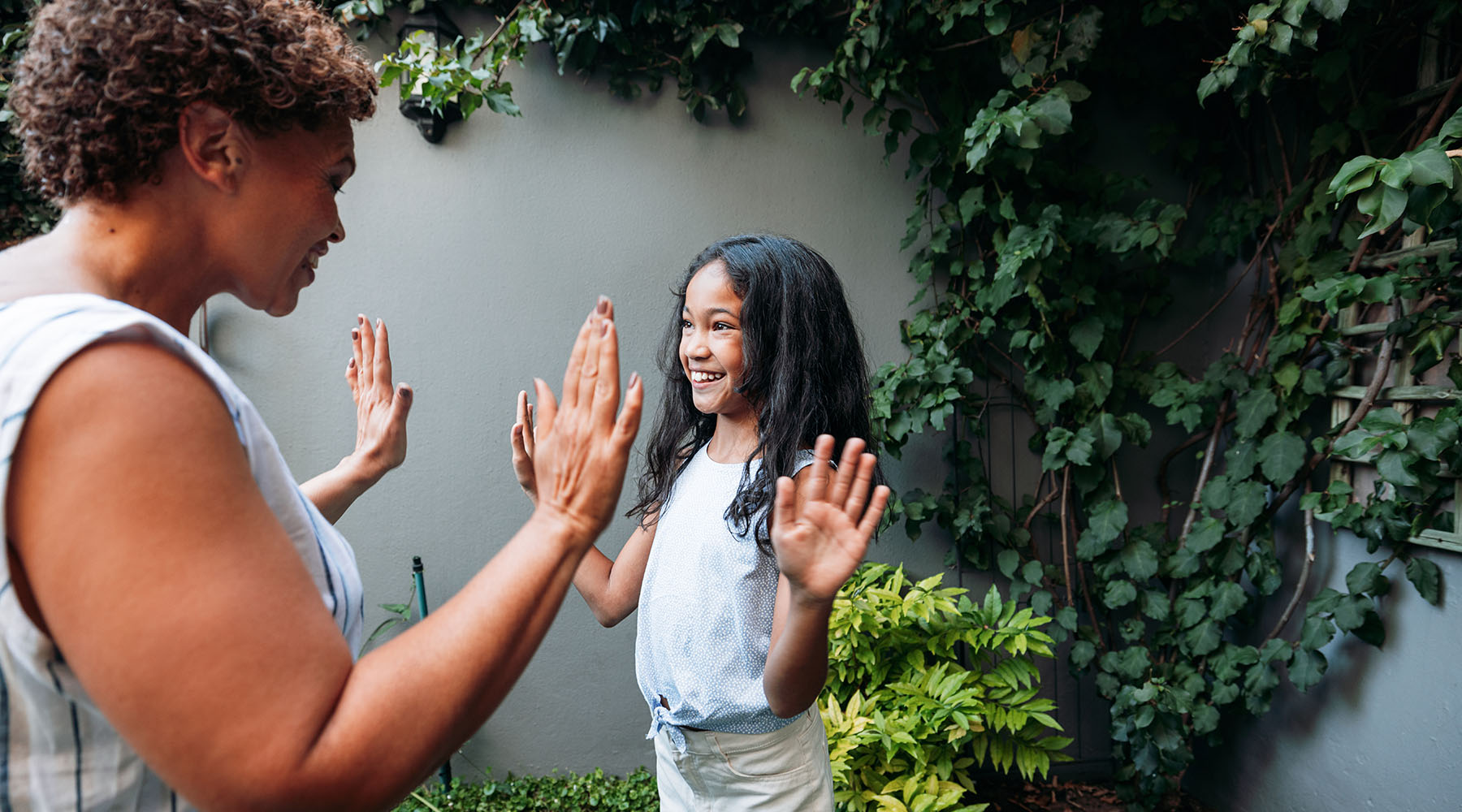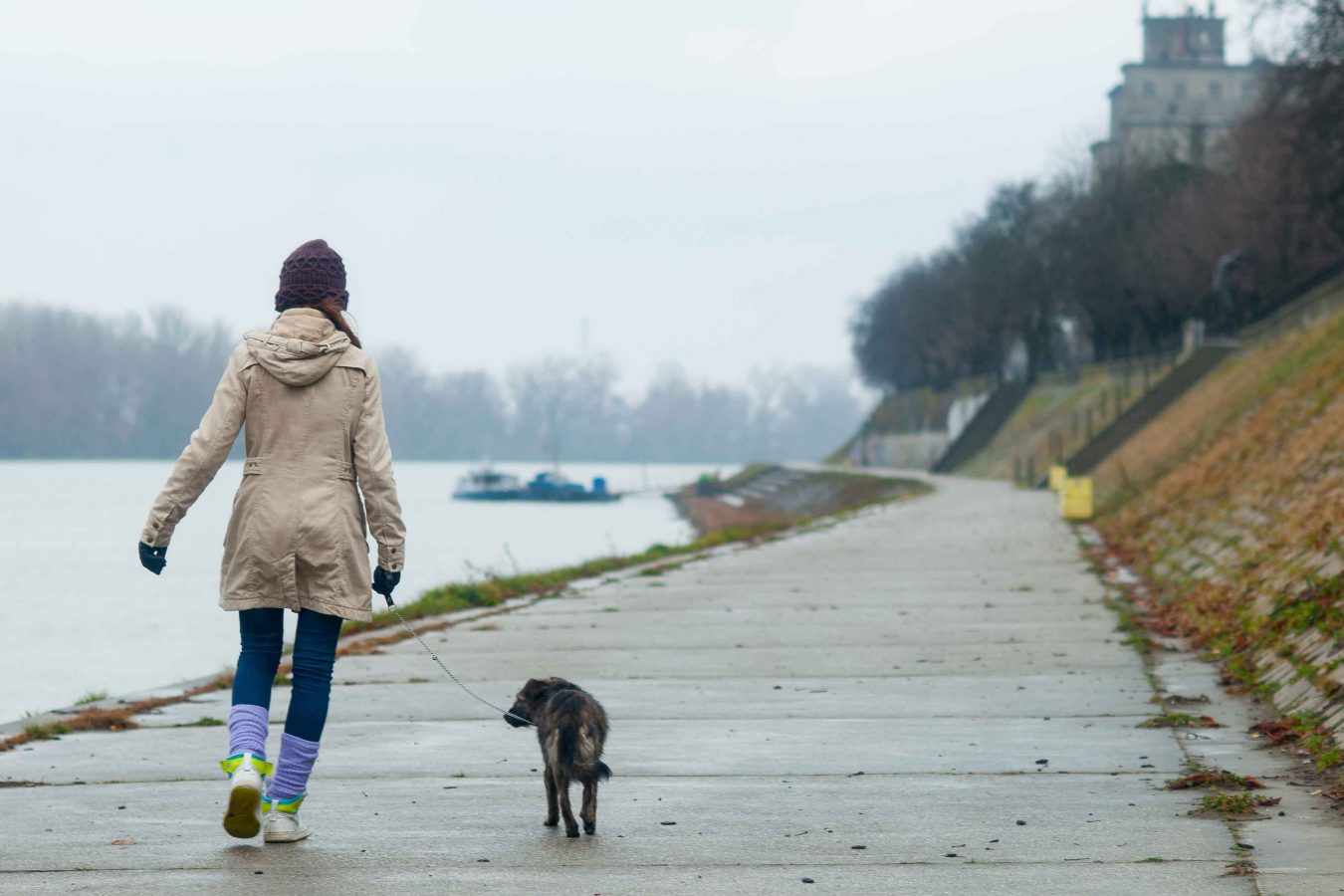
Helping children learn how to cope with uncertainty may well be the most important role that parents play, says psychologist Dr Lyn O’Grady. To do that, we need to help them find reasons to hope.
Every generation of parents has its challenges. It could be argued for parents living in the 2020s that there are many challenges in our world that haven’t been faced before or at least not at the same time – living through and with the ongoing impacts of a pandemic, climate change, extreme weather events, global instability with wars and the effects of technology on daily life. Each of these can lead to uncertainty for adults and their children.
These issues are on top of those that parents have always faced in raising their children – maintaining positive family relationships, setting boundaries to keep children safe while providing opportunities for them to grow and learn, navigating developmental changes, and supporting children through transitions and stressful periods.
Perhaps living with uncertainty has been a feature of parenting throughout the generations. Finding ways to be hopeful amidst all this uncertainty is therefore important for parents to look after themselves as well as to support their children.
Helping hope to flourish
Hope involves an open-mindedness about the future and an acceptance of not knowing while remaining curious and positive. There are three main conditions for hope to exist:
- Goals – having something to hope for that is personally meaningful and provides a sense of purpose.
- Pathways – the ability to find ways to achieve goals or to overcome obstacles.
- Agency – the motivation that pushes us to strive for our goals. This can be related to beliefs we have about ourselves.
Drawing on these conditions for themselves as well as their children can help parents to keep focused and tuned into what is most important at an individual, family and community level. It can also help keep a focus on what is within control and what is not. Sometimes with uncertainty feelings of overwhelm can lead to helplessness.
Children can show they’re overwhelmed through their behaviour and changes in eating and sleeping patterns. It can help to focus on those aspects of our lives that can be managed or should be prioritised at any one point in time.

Different types of hope
There are different types of hope and some will be more useful than others. Realistic hope is hoping for an outcome that is reasonable or probable. This can involve setting small goals that can be achieved. This type of hope can be motivating and help parents feel capable and empowered.
While realistic hope is the most active and potentially the most useful type of hope, other types might be appropriate for different situations parents face. Sometimes it might be important to sit with uncertainty for a while rather than rush to action (transcendent or existential hope). For some issues joining with others might be the most beneficial approach (utopian/collective hope). False hope, where hopes are based on vague possibilities rather than taking effective action, is not likely to be so helpful.
Modelling hope for your children
As parents, modelling ways of seeing the world through a hopeful lens, engaging with the world in a curious way, and looking to connect with others are likely to be the most useful ways to promote hope in children.
Children are watching every move their parents make, noticing how their parents respond to day-to-day stress and how they talk about the future. This modelling can help children learn how to cope with situations they face as part of living in a family or society as well as what to do when times get stressful or unexpected situations arise. This is the essence of hopefulness and resilience.
Being a parent provides adults with many opportunities to reflect on their own lives and approaches to living that they may have taken for granted. Being a caring and reflective person who is open to learning and growing will be a very helpful model for children. It takes time and effort to do that in the busyness of parenting and doing all the other tasks required to function in a world that demands much of us all.

We don't always know the full story
When thinking about ways to support children to be hopeful, it helps if parents can recognise that children have their own experiences of life that adults can’t fully comprehend. As adults we might bear witness to some of children’s experiences in the family or community. We don’t get to see them at school or in every situation. We can’t always know what they are thinking or feeling.
Children can be very good at hiding their feelings from parents, sometimes because they don’t know how to express them, but also sometimes because they want to protect their parents from having to worry about them. Children, through their personality or past experiences, will be more or less open in sharing their experiences and feelings.
Creating hope with children needs to take all of this into account.
Four steps to creating hope with kids
Steps to creating hope with children:
- Make sense first for ourselves – when tackling challenging situations we may tend to be reactive or jump to conclusions, perhaps repeating patterns from the past and doing what we always do. Taking time to reflect and gather more information can be helpful to ourselves in being prepared and confident and this will flow on to children.
- Listen carefully to children – having an open attitude and being willing to put aside any assumptions and views about what might happening to truly listen.
- Explore together – taking children’s worries seriously – this begins with validating the child’s feelings and content of what they are saying. Working towards deeper understanding can help children to feel confident in being able to cope with the situation.
- Problem solve – with support – having steps to solve problems or resolve conflict can help to work towards finding solutions that will work for everyone.
There is much that parents can do to support themselves and their children face issues that are uncertain or challenging in their lives. Helping children learn ways to cope with uncertainty may well be the most important role that parents play.
About the author
Dr Lyn O’Grady is a community psychologist and author
Her new book: Keeping our Kids Hopeful, Parenting children during times of uncertainty which will be published by Amba Press on 23 October, 2024.
Stay up to date with our newsletter here


